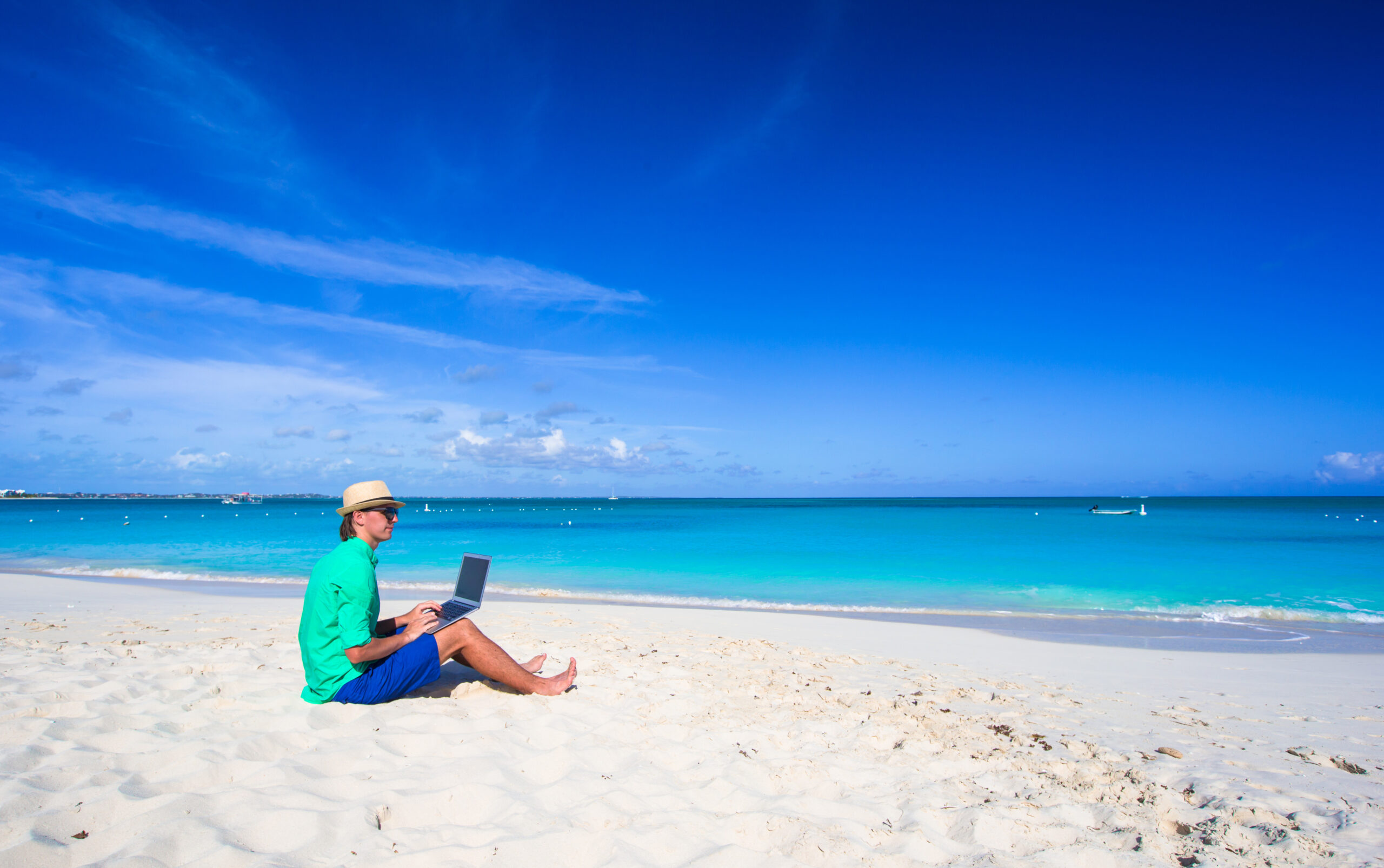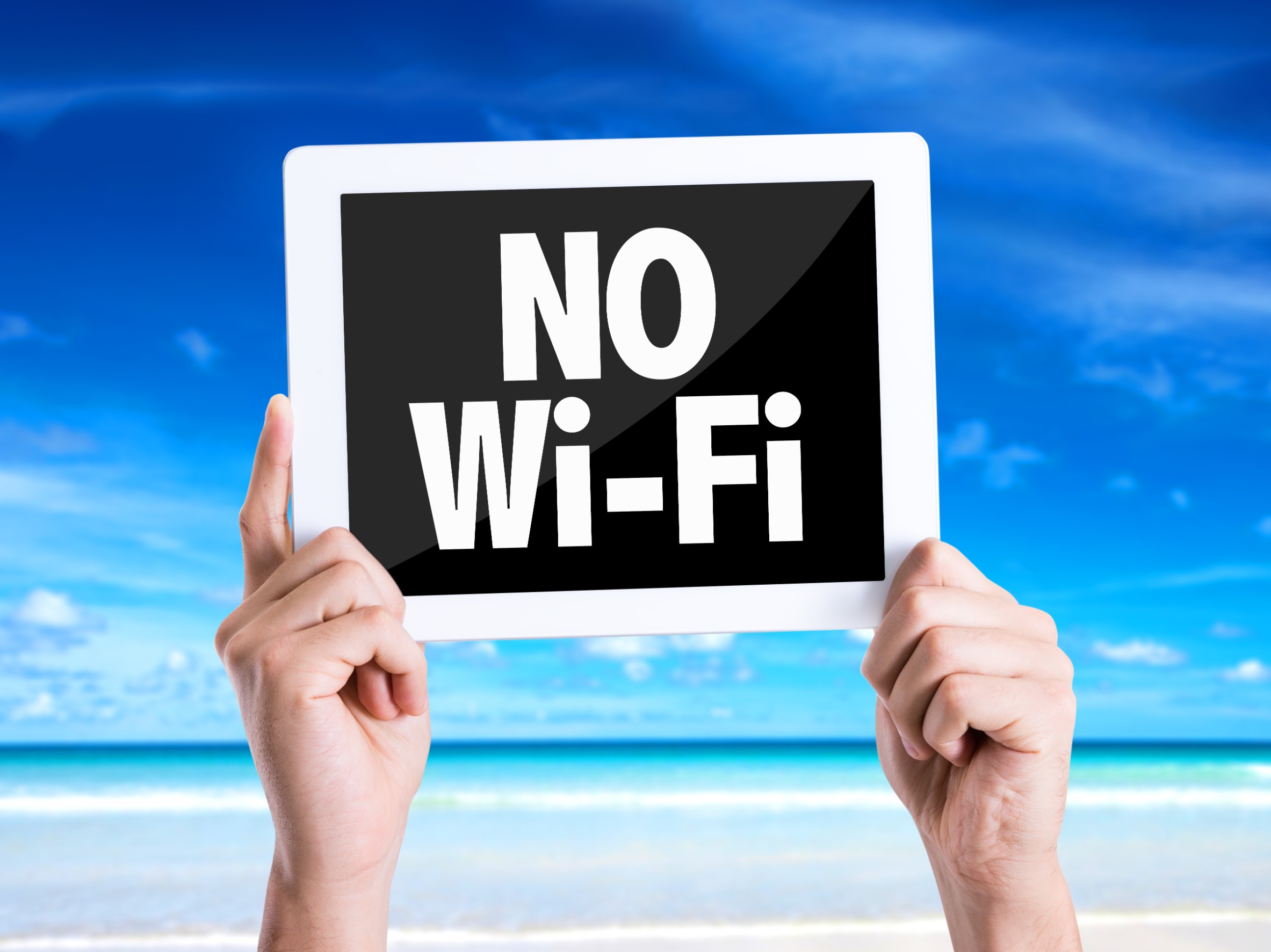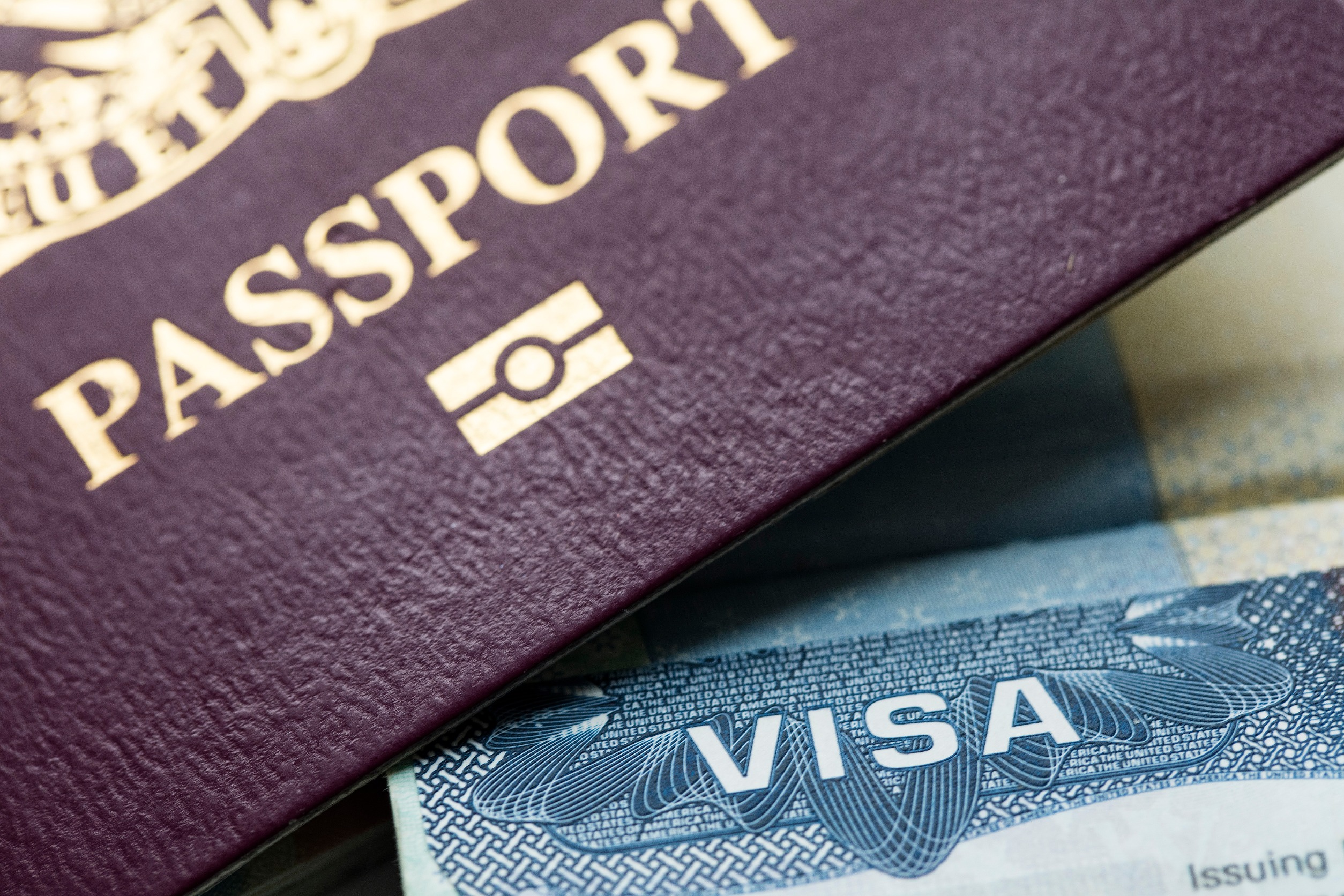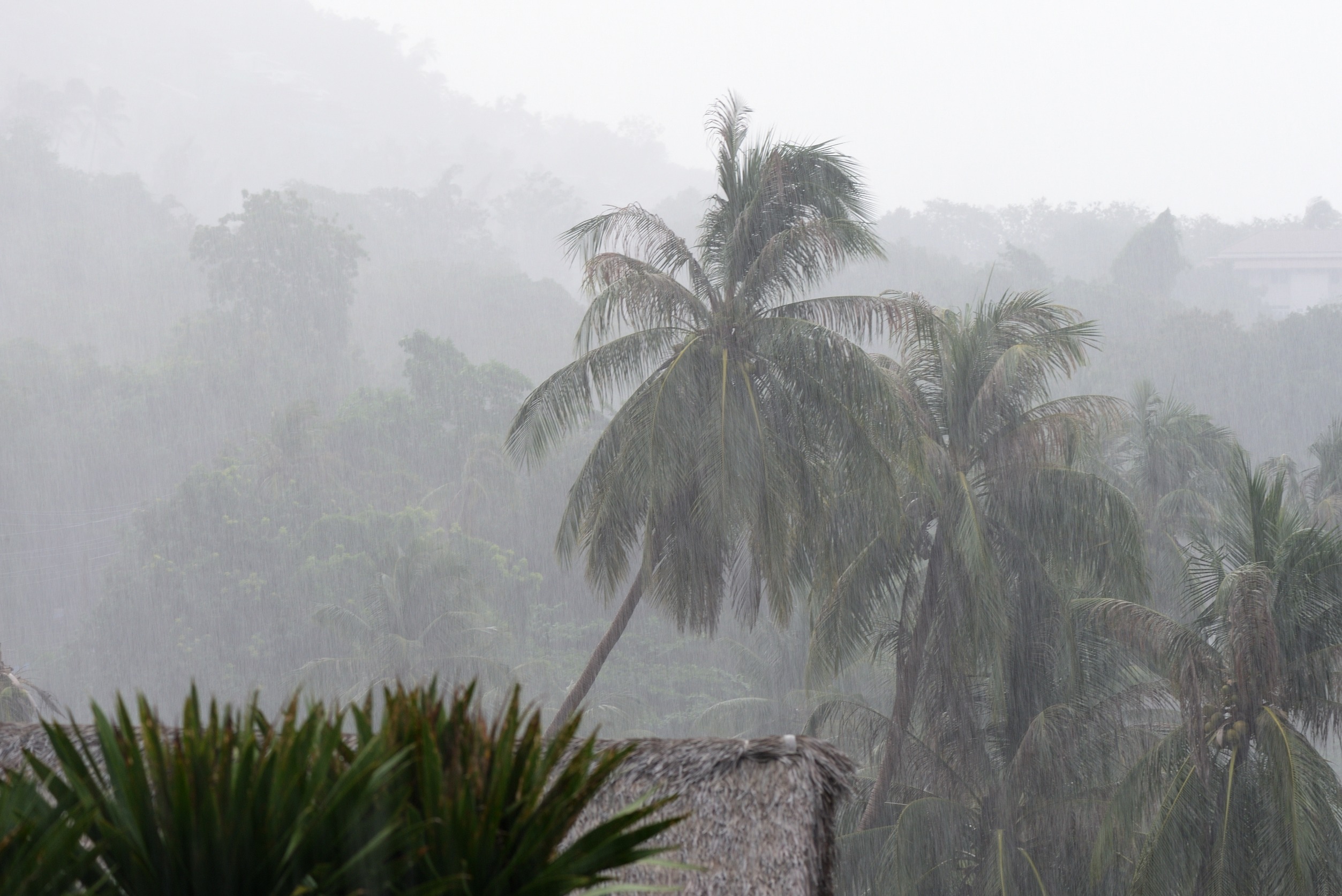
Working remotely from a tropical paradise seems like a dream come true. Imagine typing away with sandy toes and a sea breeze. However, this picturesque scenario isn’t without its pitfalls. From connectivity issues to the sun-drenched temptations that might disrupt productivity, the dream can sometimes lead to unexpected challenges. Here are 13 drawbacks that digital nomads might face when they swap the office cubicle for a hammock by the sea.
1. Unreliable Internet Connection

Even the most serene tropical paradise may struggle with consistent internet service, which can be a major hurdle for remote work. Frequent disconnections and slow speeds can disrupt video calls, delay emails, and hinder access to cloud-based services. This connectivity roulette can lead to missed deadlines and frustration. Moreover, the cost of securing a reliable connection, if available, can be exorbitant. The dream of sending a report while sipping a coconut might thus turn into a stressful ordeal of hunting for Wi-Fi.
2. Distractions Abound

The allure of golden sands and turquoise waters just steps from your workspace can make concentration difficult. It’s easy to be tempted away from your desk by a sunny day or a beach volleyball game. Additionally, the casual, holiday-like atmosphere often found in tourist destinations does little to foster a mindset of discipline and productivity. Every day feels like a vacation, which can significantly slow your work pace and lead to procrastination. Balancing work duties with the constant temptation to relax can be an ongoing struggle.
3. High Living Costs

Living in paradise often comes with a high price tag. Tourist-centric economies can mean inflated prices for everyday items compared to what you’re accustomed to back home. Renting a comfortable space suitable for living and working might cost more than expected, not to mention the expenses for dining, entertainment, and local transportation. These costs can add up quickly, diminishing the financial advantages of a remote working arrangement. Budget management becomes crucial, which can add an extra layer of stress to your seaside lifestyle.
4. Time Zone Troubles

Working in a time zone several hours away from your employer and clients can create significant challenges. Scheduling meetings can become a juggling act, with early mornings or late nights becoming the norm to accommodate others. This can disrupt your natural sleep patterns and reduce your work-life balance. The constant adjustment to align with business hours back home can leave you feeling perpetually jet-lagged without ever leaving your destination.
5. Limited Professional Networking

Building a professional network can be tough when you’re isolated in a vacation hotspot. The lack of industry events, conferences, and even casual meet-ups can hinder your opportunities for career growth. This isolation can be particularly challenging for those who thrive on face-to-face interactions and building relationships in professional settings. Over time, this can lead to a sense of professional stagnation and reduce your visibility in the industry.
6. Workplace Isolation

Working remotely from a tropical destination can often lead to feelings of isolation, especially if you’re stationed there long-term. The absence of colleagues for quick chats and brainstorming sessions can impact your social and professional interaction, which is often taken for granted in traditional workplaces. This can lead to a sense of loneliness and disconnect from your team, potentially affecting your job satisfaction and overall mental health.
7. Inconsistent Power Supply

In many island paradises, power outages are more common than in developed urban areas. This can pose a significant problem for remote workers who rely on electronic devices for their work. An unexpected power cut can not only disrupt your workday but also risk data loss or damage to unsaved work. The need for backup power solutions, like generators or solar panels, adds an additional cost and complication to your remote work setup.
8. Health Care Concerns

Access to quality health care is often limited in remote tropical areas. If you encounter a medical issue, you might find that local facilities are not equipped to handle serious conditions, necessitating expensive trips to better-equipped locations. This can be a particular concern for those with chronic health issues or who require regular medical attention. The peace of mind that comes with easy access to good healthcare is often compromised in such settings.
9. Impact on Productivity

The relaxed pace of life and the informal environment typical of a tropical locale can negatively impact your productivity. The laid-back attitude pervasive in paradise can seep into your work ethic, making it hard to maintain the same level of efficiency as in a more structured office environment. Managing self-discipline becomes crucial, and without it, your productivity can plummet, causing stress and potential issues with your employment.
10. Visa and Legal Issues

Navigating the legal requirements for staying long-term in another country can be complex and time-consuming. Visa restrictions can limit the length of your stay, and the process of extending it can be fraught with bureaucratic hurdles. Moreover, working remotely might violate the terms of a standard tourist visa, leading to potential legal troubles. Understanding and adhering to local laws is essential but can be a major hassle.
11. Unpredictable Weather

While tropical climates are known for their beautiful sunny days, they are also prone to extreme weather conditions like hurricanes and monsoons. Such weather can not only be dangerous but also disrupt your lifestyle and work. Preparing for and dealing with these conditions can be stressful and require a level of readiness that might detract from the laid-back lifestyle you sought.
12. Technological Limitations

Aside from internet issues, accessing the latest technology and fast tech support can be difficult in remote areas. If your work depends on specific hardware or software that needs regular updating or maintenance, this can become a logistical nightmare. The delay in obtaining necessary technologies or repairs can hinder your efficiency and responsiveness, affecting your professional performance.
13. Cultural and Language Barriers

Adapting to a new culture and possibly a new language can be exciting but also challenging. Misunderstandings and communication issues can complicate everyday interactions and professional dealings. While these experiences can enrich your life, they can also add an unexpected layer of difficulty to both your personal and professional endeavors.
Paradise Found, or Lost?

Working from a tropical paradise is not without its drawbacks, as the dreamy backdrop can sometimes cloud real challenges. Recognizing and preparing for these potential pitfalls can help ensure that your remote work experience is both productive and enjoyable. It’s about finding the right balance between enjoying your sunlit environment and maintaining your professional effectiveness. Remember, even paradise requires a bit of practicality.
Read More
3 valuable tips to stay sane while working remotely
11 Products That Are Must-Haves for Remote Workers

Vanessa Bermudez is a content writer with over eight years of experience crafting compelling content across a diverse range of niches. Throughout her career, she has tackled an array of subjects, from technology and finance to entertainment and lifestyle.
In her spare time, she enjoys spending time with her husband and two kids. She’s also a proud fur mom to four gentle giant dogs.
